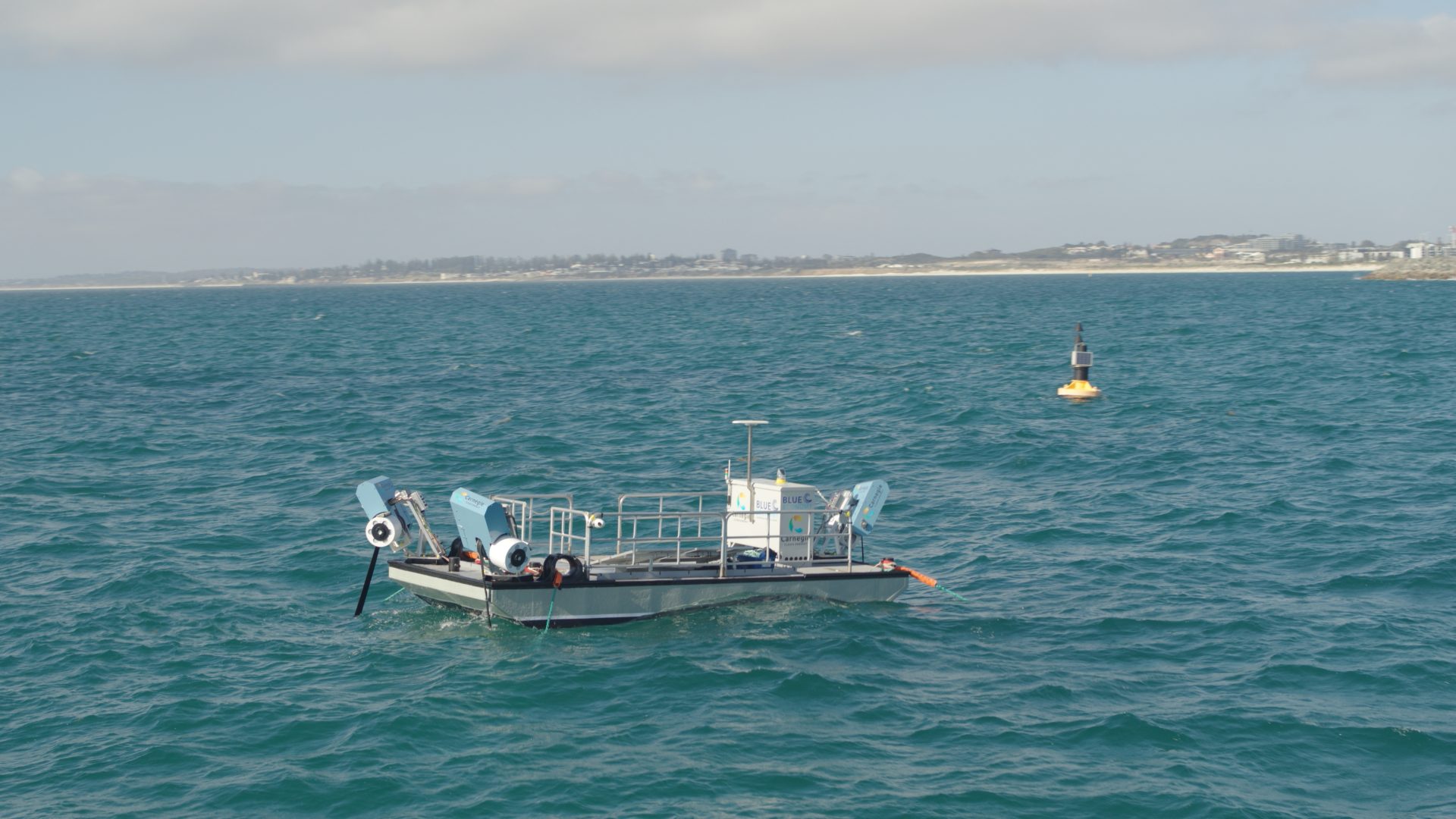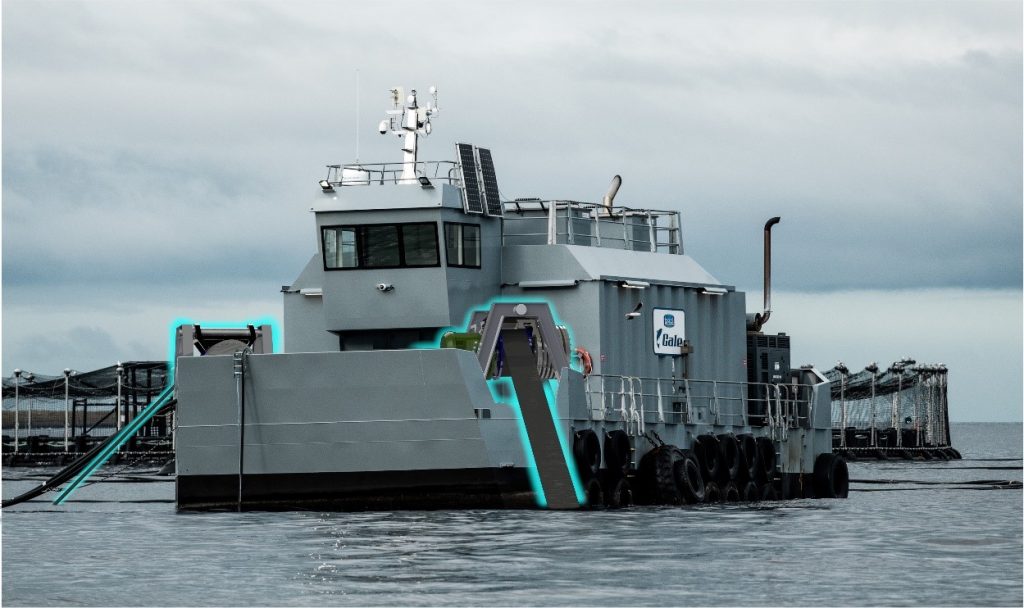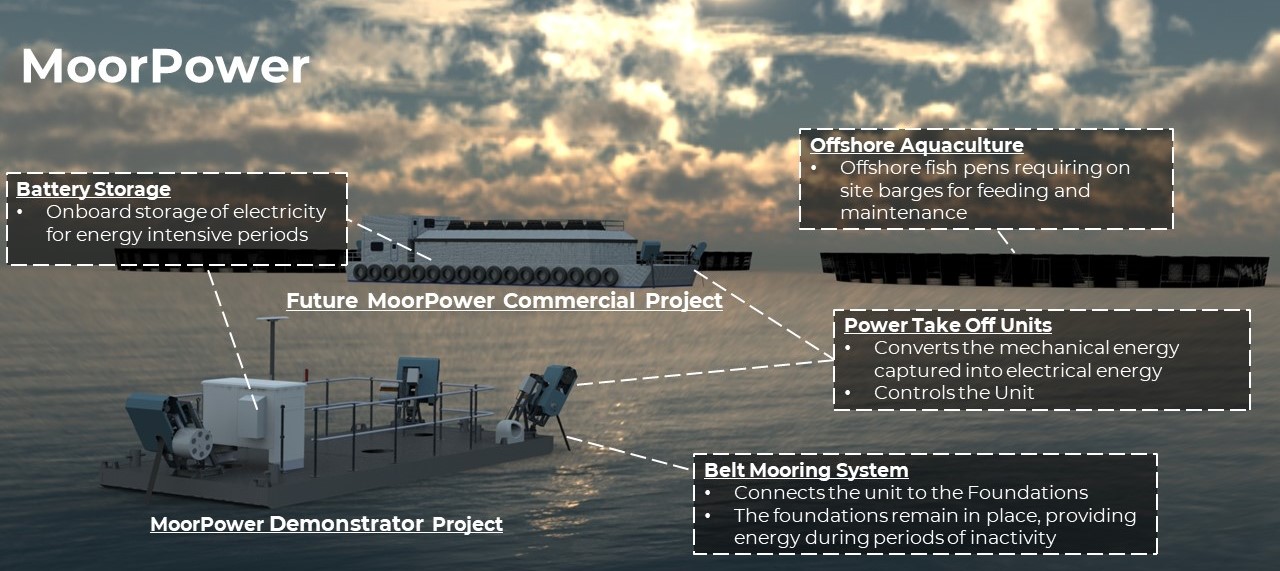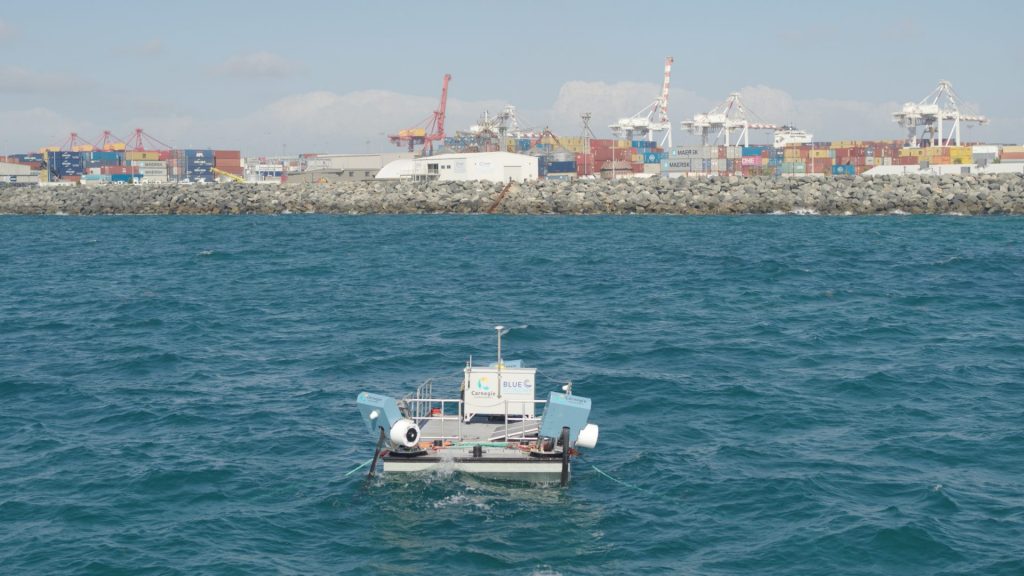
MoorPower

– MOORPOWER
Clean energy for offshore operations
MoorPower strategically generates onboard electricity, offering a sustainable alternative to diesel generators for offshore operations, ultimately mitigating carbon emissions, reducing risk, and optimising energy costs.
As the aquaculture sector expands its operations offshore, the demand for clean and reliable energy becomes increasingly critical. The reliance on diesel generators for energy-intensive offshore activities, such as feeding barges, brings with it a host of challenges including high costs, environmental risks, and carbon emissions. The issue extends beyond aquaculture to encompass various moored vessels across the blue economy.

- Increases autonomy for moored vessels
- Energy day and night in energetic wave climates
- Abates carbon emmissions that are otherwise difficult to avoid
- Reduces or removes refuelling requirements, thereby reducing risk of injury and spills
- Integrated with other energy offshore renewable energy systems including hydrogen and batteries
MoorPower has now been launched and is in operation at the offshore testing facility at Rous Head, North Fremantle WA, In the video below Carnegie CEO Jonathan Fievez shares insights into the deployment and future opportunities for the technology beyond the Demonstrator project
The MoorPower project signifies a crucial step in validating the technology and exploring large-scale implementation on aquaculture vessels. A scaled demonstrator, featuring three power take-off units connected to the seabed, showcases the technology’s viability. These units efficiently harness ocean energy as the barge moves with the motion of waves, driving onboard generators to produce ready-to-use electricity.
The demonstrator project incorporates real-time data transfer, providing critical information on wave height, wind conditions, and energy generation. Monitored at the onshore workshop in Rous Head Fremantle, WA, the system ensures efficient functioning of power take-off units and offers valuable insights for optimizing performance. The real-time monitoring system plays a crucial role in addressing potential issues promptly, marking the MoorPower project as a pioneering deployment that marries technological innovation with sustainability in the realm of aquaculture vessel operations.
MoorPower In Action
See the MoorPower Demonstrator deployed and in action in the video below;
What is MoorPower
MoorPower is a pioneering wave energy converter system, custom-designed to meet the energy demands of offshore applications. Collaborating with The Blue Economy Cooperative Research Centre (BECRC), Carnegie is actively working alongside project partners Huon Aquaculture and Tassal Group to understand the needs of industry and tailor a purpose built solution for their energy needs. MoorPower aims to provide clean and perpetual electricity for offshore operations, offering a sustainable alternative to conventional diesel generators.

MoorPower tackles a plethora of challenges linked to offshore aquaculture operations in areas lacking onshore electricity. Presently, dependence on diesel or other fossil fuel generators gives rise to a series of complications. Ensuring a consistent supply of diesel fuel for generators becomes a logistical hurdle, involving intricate transportation and storage processes. The logistics are further complicated by the unpredictable and potentially harsh weather and ocean conditions, significantly escalating costs. Furthermore, the environmental consequences of fuel transport, encompassing the risk of spills in the marine ecosystem and air pollution from burning fuel, pose substantial threats to both the surrounding environment and the aquaculture operations.
The project alleviates high-risk scenarios associated with human safety in offshore operations. The transport of fuel to these locations is challenging, as vessels navigate through volatile weather conditions. This not only jeopardises the safety of individuals involved but also poses a threat to the vessels themselves. Additionally, with an increasing emphasis on emissions regulations and the imperative to reduce carbon footprints, the reliance on diesel generators becomes a compliance challenge for offshore operators. This project signifies a transformative step towards a more sustainable and environmentally friendly solution, addressing these multifaceted issues inherent in traditional offshore energy practices.
MoorPower’s advantages extend beyond fish farming, as it can be deployed for any type of moored vessel. The technology’s key benefits include increased autonomy, 24/7 energy supply in energetic wave climates, carbon emission reduction, elimination or reduction of refuelling requirements, and integration with other offshore renewable energy systems, including hydrogen and batteries.

The Blue Economy Cooperative Research Centre (CRC) is established and supported under the Australian Government’s CRC Program, grant number CRC-20180101. The CRC Program supports industry-led collaborations between industry, researchers and the community. With a 10-year life, the Blue Economy CRC brings together 44 industry, government, and research partners from ten countries with expertise in aquaculture, marine renewable energy, maritime engineering, environmental assessments and policy and regulation. Further information about the CRC Program is available at www.business.gov.au.
